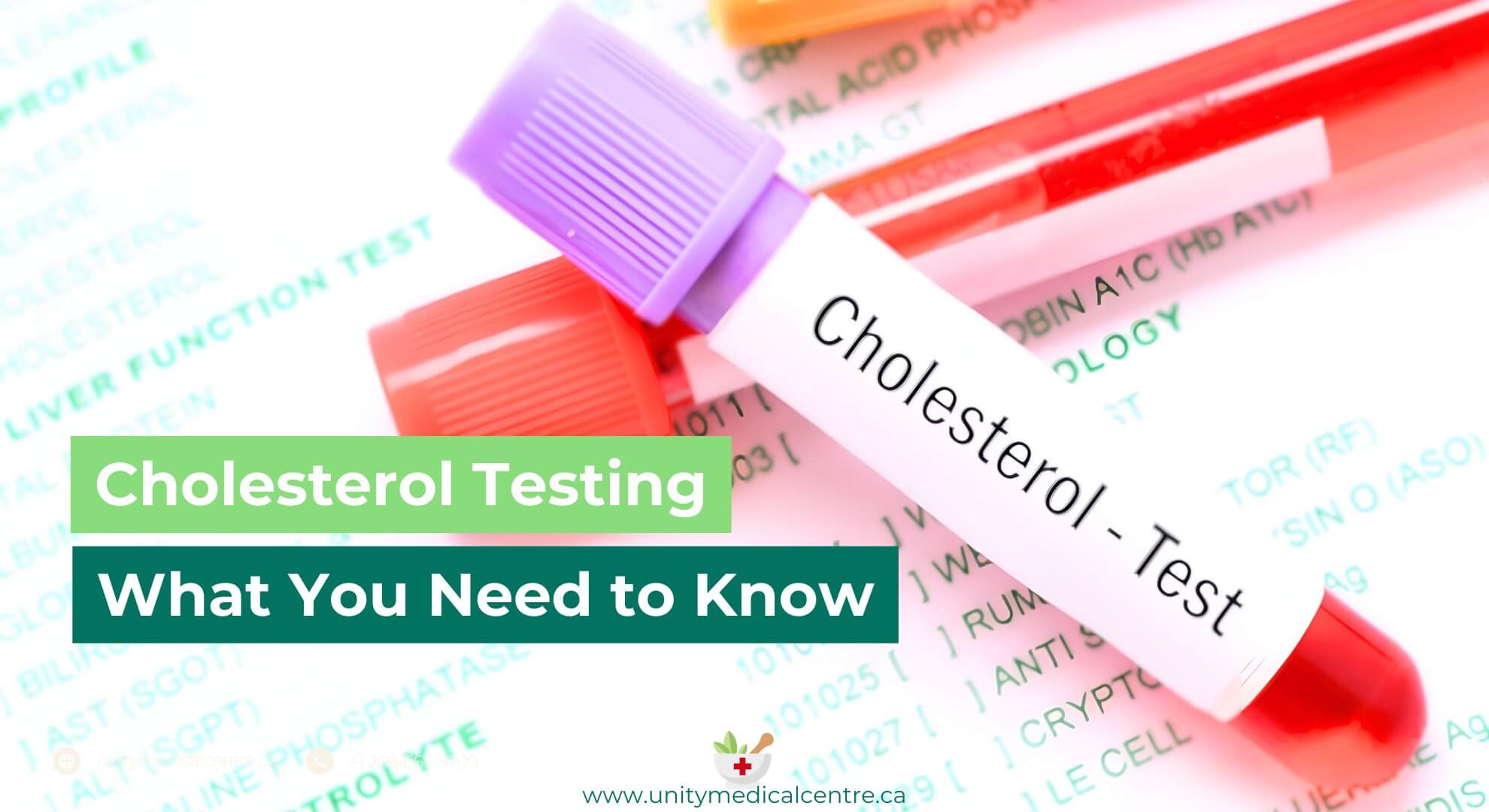
Cholesterol Testing:
What You Need To Know?
Introduction
In the realm of heart health, understanding cholesterol levels is crucial. Cholesterol, a waxy substance produced by the liver and obtained from certain foods, plays a vital role in the body. However, having high levels of certain types of cholesterol can increase the risk of heart disease and stroke. Cholesterol testing, also known as a lipid panel or lipid profile, is a valuable tool for assessing heart health and understanding individual risk factors.
Why Cholesterol Testing Matters
Cholesterol testing provides crucial information about the amount and types of cholesterol in the bloodstream. The test typically includes several components:
- Total cholesterol: This measures the overall amount of cholesterol in the blood, including both HDL (good) cholesterol and LDL (bad) cholesterol.
- HDL cholesterol: High-density lipoprotein is considered “good” cholesterol because it helps remove LDL cholesterol from the arteries, transporting it back to the liver to be broken down and eliminated from the body.
- LDL cholesterol: Low-density lipoprotein is considered “bad” cholesterol because it can contribute to plaque buildup in the arteries, leading to atherosclerosis and increasing the risk of heart disease.
- Triglycerides: These are another type of fat in the blood. High triglyceride levels can also increase the risk of heart disease.
Who Should Get Tested?
Cholesterol testing is recommended for individuals at risk of heart disease, including those with:
- Family history of heart disease
- High blood pressure
- Diabetes
- Obesity
- Unhealthy lifestyle habits (smoking, sedentary lifestyle, poor diet)
Regular cholesterol testing is essential for adults over 40 and individuals with specific risk factors. It provides valuable insights into heart health and helps guide preventive measures.
Understanding Test Results
Interpreting cholesterol test results is critical for assessing heart disease risk. Ideal cholesterol levels vary based on individual health factors, but generally, the goals are:
- Total cholesterol: Less than 200 mg/dL
- HDL cholesterol: 60 mg/dL or higher
- LDL cholesterol: Less than 100 mg/dL (for those at higher risk, less than 70 mg/dL)
- Triglycerides: Less than 150 mg/dL
High cholesterol levels often require lifestyle changes, medication, or both to reduce the risk of heart disease.
How to Prepare for a Cholesterol Test
Before a cholesterol test, fasting for 9-12 hours is typically required to obtain accurate results. During the test, a small blood sample is taken and analyzed. Results are usually available within a few days.
Additional Considerations and Risk Factors
Beyond the basic lipid profile, advanced cholesterol testing may include:
- Particle size and density: This measures the size and number of cholesterol particles, which can affect heart disease risk.
- Genetic testing: Identifying specific genetic factors that contribute to cholesterol metabolism and heart disease risk.
- Coronary calcium scoring: This test assesses the amount of calcium in the coronary arteries, providing insights into plaque buildup and heart disease risk.
Take Charge of Your Heart Health
Regular cholesterol testing empowers individuals to take proactive steps toward heart health. It allows healthcare providers to identify risk factors early, recommend appropriate interventions, and monitor progress over time.
Remember, managing cholesterol levels is essential for overall cardiovascular wellness. A healthy diet rich in fruits, vegetables, whole grains, and lean proteins, along with regular exercise and routine cholesterol testing, are key components of heart disease prevention.
By staying informed and proactive, individuals can protect their heart health and reduce the risk of heart disease. Cholesterol testing is a fundamental step in this journey, providing valuable insights that pave the way for a healthier future.
References
- American Heart Association. (2022). Cholesterol. https://www.heart.org/en/health-topics/cholesterol
- National Heart, Lung, and Blood Institute. (2022). High Cholesterol. https://www.nhlbi.nih.gov/health-topics/high-cholesterol
- Mayo Clinic. (2022). Cholesterol Levels: What Numbers Should You Aim For? https://www.mayoclinic.org/diseases-conditions/high-blood-cholesterol/in-depth/cholesterol-levels/art-20048245
Related posts:
- The Green Prescription: How Lifestyle Choices Can Rewrite Your Health Story
- 10 Lifestyle Tips for Chronic Disease Prevention
- Combating Childhood Obesity: Effective Solutions for a Healthier Generation
- The Surprising Link Between Gut Health and Stress: The Gut-Brain Connection
- How To Manage Your Cholesterol Level
